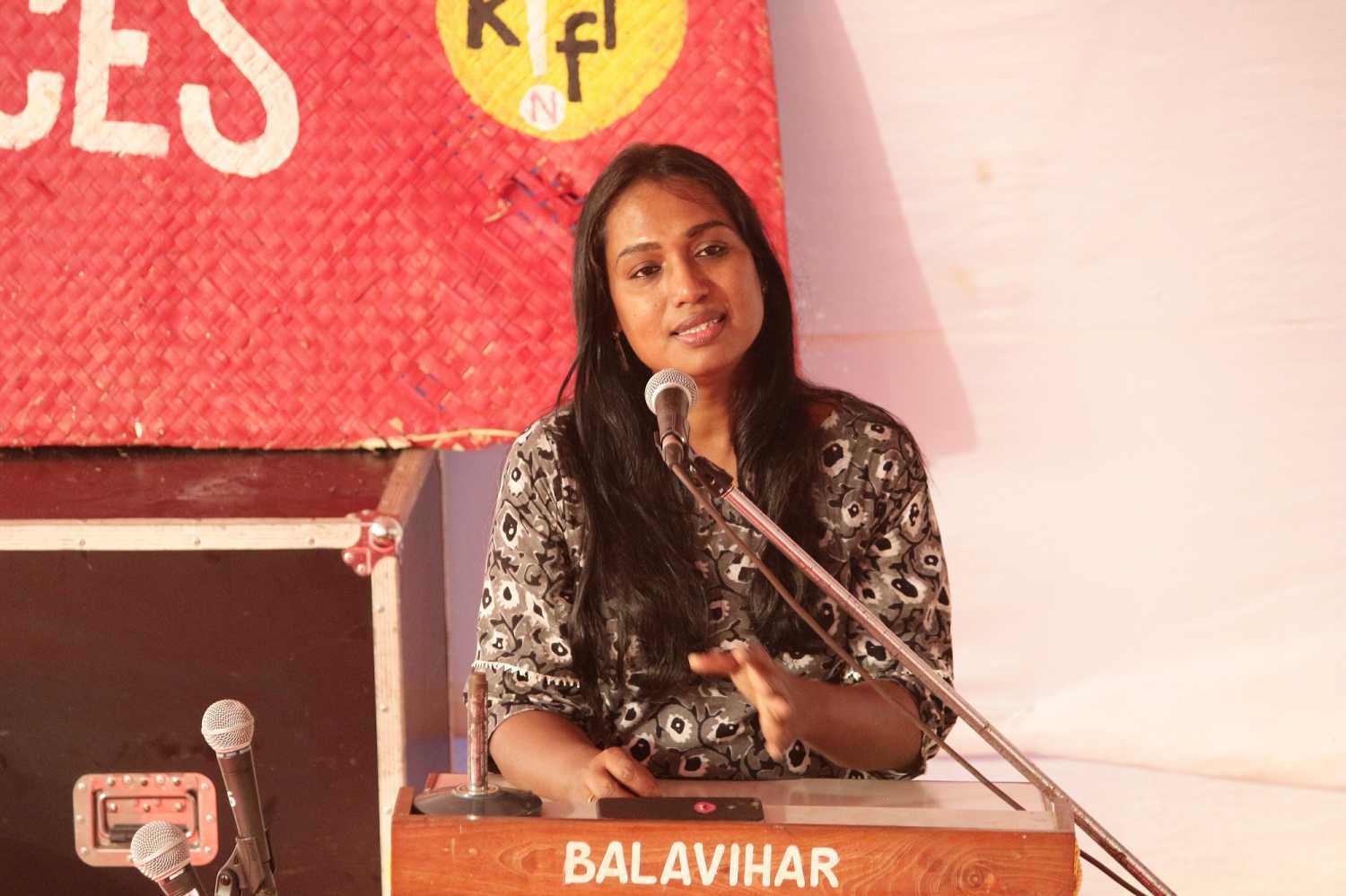Kalki began her powerful oration with the poignant observation that the history of Indian cinema is also the history of the shaming of transgenders.
Indian cinema has not done justice to transgenders: Kalki Subramaniam
Trivandrum - 12 Dec 2018 11:37 IST


Vidyasree Bindu
In complete congruence with its theme of inclusion, the Kazhcha-NIV Indie Film Festival (KNIFF) 2018 brought transgender rights activist, actress, poet, artist and speaker Kalki Subramaniam to voice her opinion on the 'portrayal and impact of transgender lives in Indian cinema'.
Kalki began her powerful oration with the poignant observation that the history of Indian cinema is also the history of the shaming of transgenders.
She pointed out how anything feminine, be it women, boys or men, is treated badly in society and how this gets reflected in cinema as well.
But there is hope, she said, as there is a slight change in the portrayal of transgenders at least in some movies that were made in the past 15-20 years.
The portrayal of the non-binary is still a problem in Indian cinema and it affects their lives directly. Kalki highlighted how cinema can impart a significant influence on the mass audience and how it can be used to make a change.
Kalki elucidated how the transgenders were systematically portrayed in negative light in movies like Sangharsh (1999, Hindi), Sadak (1991, Hindi), Palabhisekham (1977, Tamil) and so on. It is not just about wrong portrayal, but also about the shaming that is done through these films which is injustice, she said.
In her opinion, filmmakers and scriptwriters are not doing enough research on transgender lives and experiences. From Malayalam cinema, she quoted the example of the commercial flick Chanthupottu (2005) as an example of how elements of gender fluidity [in the movie the protagonist is an effeminate man] are exploited for success.
However, films like Mani Ratnam’s Bombay (1995, Tamil/Hindi) made a positive start in portraying transgenders in a humane way. So was the case with the critically acclaimed film Naan Kadavul (2009, Tamil) directed by Bala, Raghava Lawrence’s Kanchana (2011, Tamil) and the 2011 Tamil drama Narthaki in which Kalki herself acted.
Even when there are such movies coming up, what shocked her most is the fact that acclaimed and successful directors keep using the transgender elements to shame an entire community.
She cited S Shankar’s I (2015, Tamil), the Prithviraj-starrer Ninaithale Inikkum (2009, Tamil) and Gautham Vasudev Menon’s Vettaiyadu Vilaiyadu (2006, Tamil) and Sillunu Oru Kaadhal (2006, Tamil) as examples.
In certain movies transgenders were used to portray the community in bad light, exploiting their economic exclusion, she said.
In most films, she said, they are portrayed as sexual predators or clowns. "The kind of words used by the transgenders in the film as well as those used to address them are all disrespectful," she said.
Kalki observed how Indian cinema, in a way, accelerated the process of degrading the status of the transgender community in India. This affected her life and the lives of many transgenders across the country.
“We struggle to be beautiful in a world full of lies,” said Kalki. She urged young filmmakers among the audience to make films from the point of view of the transgenders and not according to mainstream perceptions. She underlined that the transgender community is vulnerable and needs an art of its own.
She said, “Do not shame us; just show us as we are.”
Related topics
Kazhcha Indie Film Festival
